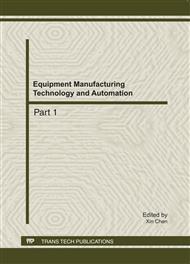p.1486
p.1490
p.1495
p.1501
p.1507
p.1512
p.1518
p.1525
p.1529
Road Adaptive Suspension Controller Based on Partial-State Feedback Gain Scheduling
Abstract:
A new control algorithm combing Reduced-order observer, LQG and Fuzzy Logic Controller (RLFLC) is proposed to compromise the classical suspension conflict between riding comfort and driving safety. The RLFLC optimizes the weights of the performance indexes on line in accordance with variational suspension deflection and body acceleration to schedule the gain of LQG controller dynamically for achieving multiple control objectives. In particular, a reduced-order observer is introduced to estimate some state variables which are difficult to measure. Compared with the passive suspension and the conventional LQG control system, the simulation results show that RLFLC can be adaptive to vehicle speed and road conditions to improve not only the riding comfort at low speeds, but also driving safety at high speeds without violating the given suspension deflection limit
Info:
Periodical:
Pages:
1507-1511
Citation:
Online since:
August 2011
Authors:
Keywords:
Price:
Сopyright:
© 2011 Trans Tech Publications Ltd. All Rights Reserved
Share:
Citation:


